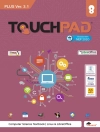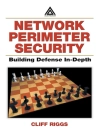The Creo Parametric 4.0 Black Book is the second edition of our series on Creo Parametric. With lots of additions and thorough review, we present a book to help professionals as well as learners in creating some of the most complex solid models. The book follows a step by step methodology. In this book, we have tried to give real-world examples with real challenges in designing. We have tried to reduce the gap between university use of Creo Parametric and industrial use of Creo Parametric. In this edition of book, we have included many new features of Creo Parametric like 3D printing, MBD (Model Based Definition), Family tables, Mechanism Design, 3D PDFs, and so on. There are about 60 topics newly added in this book which were not in the previous edition. The book covers almost all the information required by a learner to master Creo Parametric. The book starts with sketching and ends at advanced topics like Sheetmetal, Surface Design, 3D Printing and MBD. Some of the salient features of this book are :
In-Depth explanation of concepts
Every new topic of this book starts with the explanation of the basic concepts. In this way, the user becomes capable of relating the things with real world.
Topics Covered
Every chapter starts with a list of topics being covered in that chapter. In this way, the user can easy find the topic of his/her interest easily.
Instruction through illustration
The instructions to perform any action are provided by maximum number of illustrations so that the user can perform the actions discussed in the book easily and effectively. There are about 1200 small and large illustrations that make the learning process effective.
Tutorial point of view
At the end of concept’s explanation, the tutorial make the understanding of users firm and long lasting. Almost each chapter of the book has tutorials that are real world projects. Moreover most of the tools in this book are discussed in the form of tutorials.
Project
Free projects and exercises are provided to students for practicing.
For Faculty
If you are a faculty member, then you can ask for video tutorials on any of the topic, exercise, tutorial, or concept.
Daftar Isi
Chapter 1 Starting with Creo Parametric
Installing Creo Parametric
Starting Creo Parametric
Creo Parametric Interface
Chapter 2 Sketching
Starting Sketching Environment
Setting Up Grid
Sketching Tools
Dimension Tools
Geometric Constraints
Editing Tools
Chapter 3 Advanced Sketching and Practical
Inspect Options
Applying Relations to Dimensions
Importing Sketches in Current Sketch
Practical
Practice
Chapter 4 3D Modeling Basics
Starting Part mode
Planes in 3D
Datums
Creating Sketches on Planes
Extrude
Importing Sketches
Revolve
Sweep
Helical Sweep
Blend
Rotational Blend Swept Blend
Chapter 5 3D Modeling Practical and Practice
About Drawings
Component representation methods
Practical
Practice
Chapter 6 3D Modeling Advanced
Engineering Features
Editing tools
Chapter 7 3D Modeling Advanced Practical and Practice
Practical
Practice
Chapter 8 3D Modeling Advanced-II
Datum Reference
Datum Graph
User-Defined Feature
Scaling Model
Family Table
Importing Part/Assembly
Merge/Inheritance
Rendering
Chapter 9 Assembly and Practical
Starting Assembly environment & Inserting Base component in Assembly
Constraints in Relationship Type drop-down
Constraints in Mechanism
Connections drop-down
Exploded View
View Manager and its Role
Appearance
Practical
Practice
Chapter 10 Advanced Assembly and Introduction to Mechanism
Bottom-Up Assembly Approach
Mechanism Design
Applying Gear Relations
Applying Cam-Follower Relation
Applying 3D Contact Relation
Applying Belt Relation
Servo Motors
Apply Force Motors
Applying Springs
Specifying Mass Properties
Defining Gravity
Defining Initial Conditions
Defining Termination Conditions
Performing Mechanism Analysis
Chapter 11 Sheetmetal Design
Starting Sheetmetal Design
Extrude for Sheetmetal
Twist
Flat tool
Flange Tool
Planar Tool
Bending Tools
Unbend
Bend Back
Solid to Sheetmetal
Rip Tools
Corner Relief
Forming Tool
Die Form Tool
Flat Pattern
Flexible Modeling for Sheetmetal
Practice
Chapter 12 Surface Design
Extruded surface
Other Solid Modeling tools for Surfacing
Boundary Blend
Fill
Trimming Surfaces
Merging Surfaces
Offsetting Surfaces
Thicken
Solidify
Editing surfaces using control points
Vertex Round
Practical
Practice
Chapter 13 Drawing
Starting Drawing
Inserting Drawing Sheets
Adding Model to the Drawing
Placing the First View (Base View)
Projection View
Auxiliary View
Revolved View
Creating Section Views
Annotations
Geometric Tolerance
Surface Finish Symbol
Notes & Modifying Dimension Style
Creating Tables and Bill of Materials (BOM)
Generating Balloons
Practice
Chapter 14 Model Based Definition (MBD) and 3D Printing
Annotation Planes
Show Annotations
Combination States
GD&T Advisor and 3D PDF Creation
3D Printing
Part Preparation for 3D Printing












